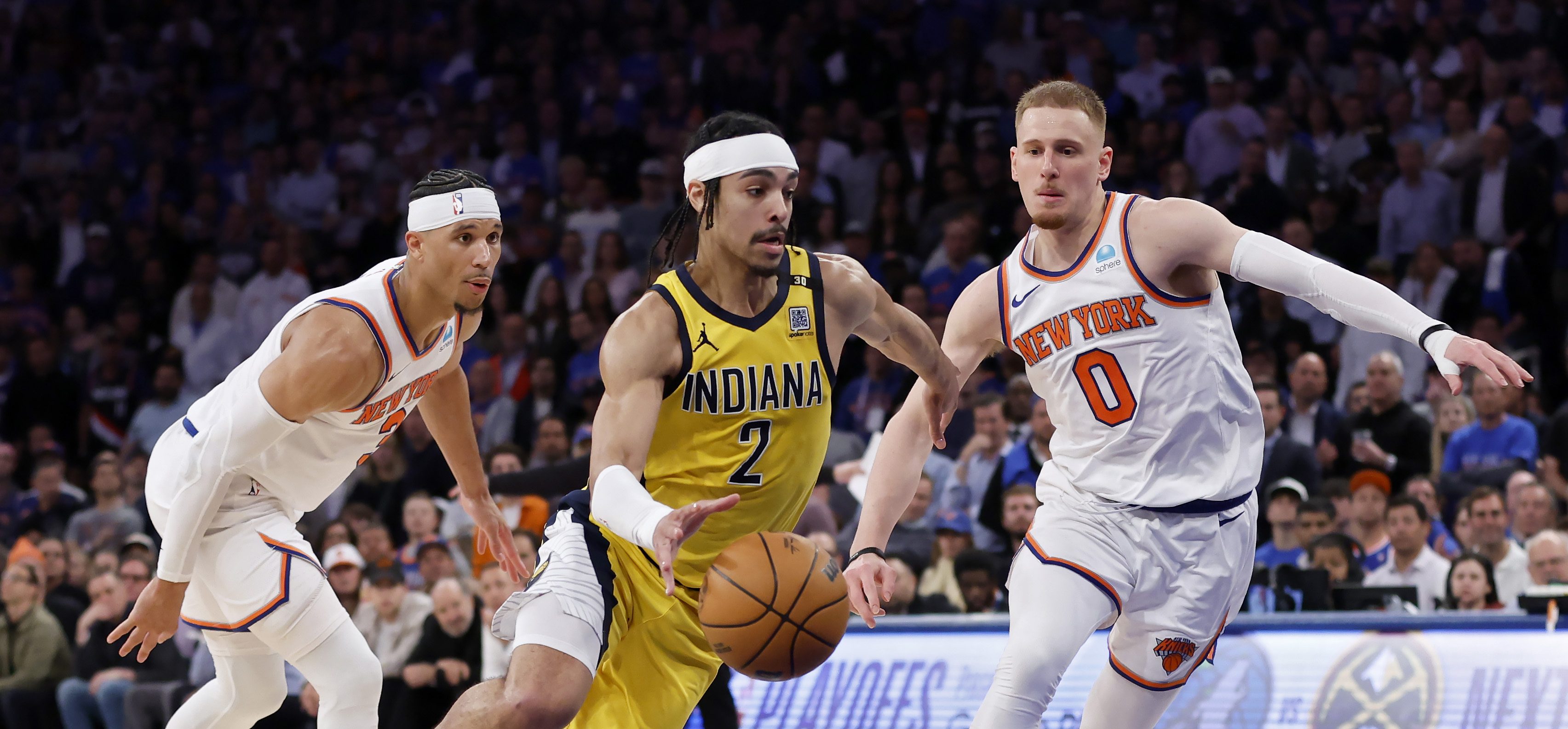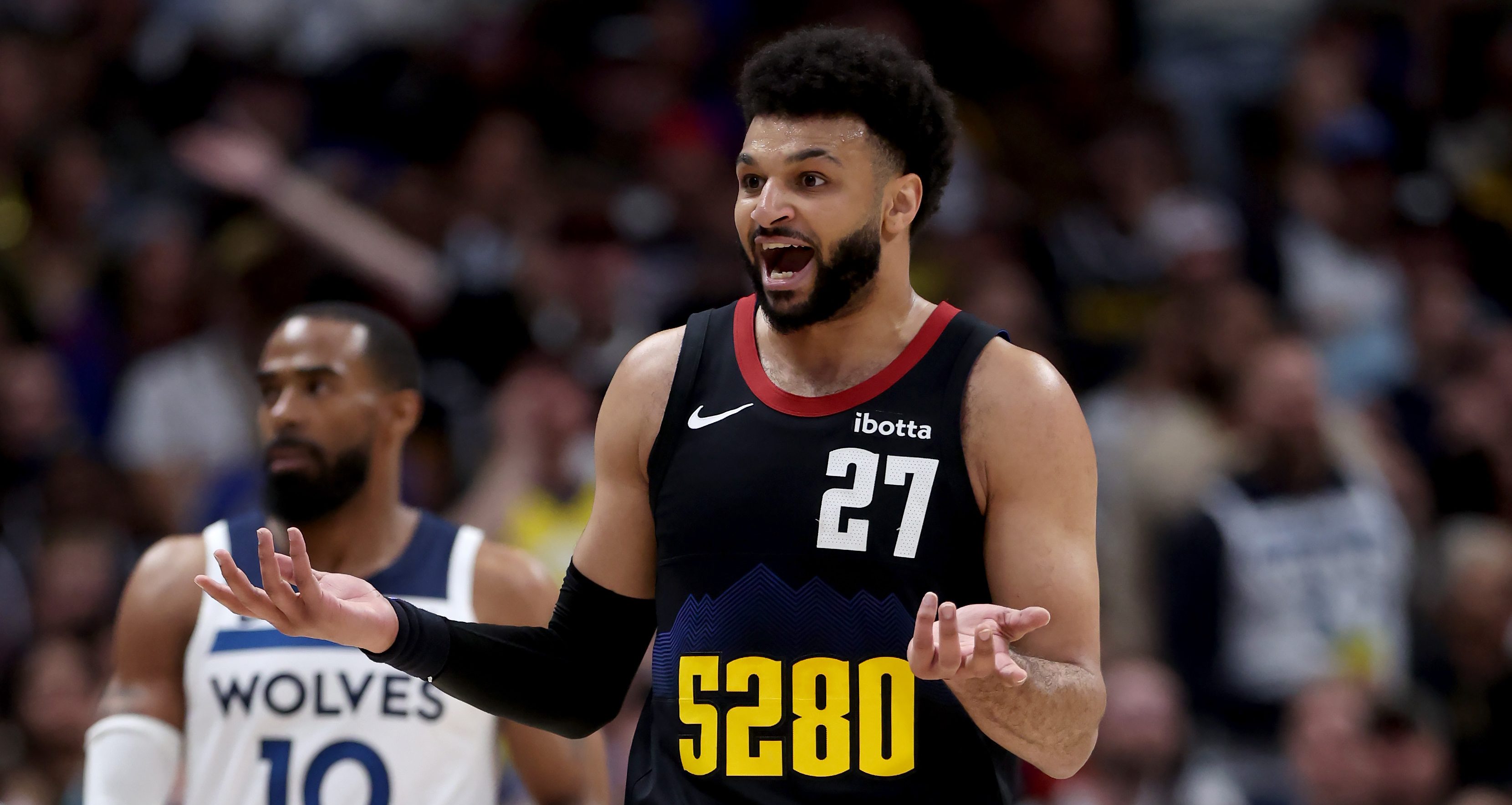It’s not often that you see a nine-year NBA veteran reinvent his game in the way that Harrison Barnes did in the 2020-21 season. At least not without a major injury forcing the change.
Known as a quality scorer and solid all-around performer, Barnes made a concerted effort this season to refine his offensive game and add elements that weren’t there before. His value spiked as a result, and the Kings decided to keep him around with the hopes that he can be part of a team that eventually delivers a playoff bid in Sacramento.
The veteran forward posted his best numbers during his time Sacramento and for now, he appears part of the plan moving forward. Here is a deep dive into Barnes' second full season in a Kings uniform.
Stay in the game with the latest updates on your beloved Bay Area and California sports teams! Sign up here for our All Access Daily newsletter.
Offense
20-21 Stats: 16.1 points, 3.5 assists, 6.6 rebounds, .7 steals, 49.7% FG, 39.1% 3pt
19-20 Stats: 14.5 points, 2.2 assists, 4.9 rebounds, .6 steals, 46.0% FG, 38.1% 3pt
In his two and a half seasons with the Dallas Mavericks, Barnes was used as a volume scorer from all over the court. His shot chart was a mess, including an incredibly large number of shots from the midrange. In 2016-17, Barnes attempted 590 shots from 10 feet to the 3-point line and in 2017-18, he reduced that number to 372.
NBA
This season in Sacramento, Barnes took just 30 total attempts from this range. He either scored inside of 10 feet or from behind the arc, which is why his field goal percentage jumped to a career-best 49.7 percent on the season. He also matched his career-high of 4.1 free throw attempts per game and he shot 83 percent from the stripe.
From the corner three spot, Barnes shot exactly 50 percent on 62 attempts this season, including a deadeye 56.7 percent from the left corner. His numbers dipped above the break to just 35.6 percent on 194 attempts. Kings point guards should work to get him more corner looks in future seasons.
When the Kings needed a bucket to stop a run, Barnes became a reliable back-to-the-basket option. He’s developed a Euro step that makes him difficult to defend both in transition and in the half-court.
On the downside, a quarter-by-quarter scoring breakdown shows that Barnes becomes less and less effective as a scorer as the game wears on. He shot 56.9 percent in the first quarter of games this season and his numbers steadily declined in each quarter to just 42.9 percent in the fourth. Barnes played heavy minutes all season, which is a contributing factor to this decline in percentages. He’s also asked to defend some of the opposing team’s best scorers late in games, which impacts his numbers on the opposite end of the court as well.
Not known for his ability to create for others during his career, Barnes made a concerted effort to improve his overall passing numbers this year. Despite a slight decrease in usage, Barnes posted a career-high 3.5 assists and bumped his assist percentage from 9.2 percent to 13 percent.
This was a tremendous development for the Kings and something that appears repeatable moving forward. Barnes ranked in the top 30 amongst all NBA forwards in assists on the season. Despite the increase in playmaking duties, he saw a small increase in turnovers, finishing with a 3.5-to-1.6 assist-to-turnover ratio.
Defense
For as bad as the Kings’ defense was this season, Barnes’ play wasn’t horrible. He’s worked hard on his body to maintain the flexibility to play small forward, but also added strength to fill in for long stretches at the four.
Barnes was part of the Kings’ closing lineup, including De’Aaron Fox, Tyrese Haliburton, Buddy Hield and Richaun Holmes. This group was incredibly effective all season long until injuries forced coach Luke Walton to search out different combinations.
On one of the worst defensive squads in league history, Barnes was close to a neutral defender. He held his opponents to .2 percent below their season average inside of the arc and just one percent over their league average overall. His opponents shot 2.9 percent better than their average from long range, but this had plenty to do with the Kings’ slow rotations and overall lack of team defense.
As a rebounder, Barnes took huge strides, in the same way that he did as a passer on the offensive side of the ball. Barnes averaged a career-best 6.6 boards per game, a 1.7 rebound increase over his previous season in Sacramento and a 1.5 rebound increase over his career average.
Where Barnes made the biggest improvement as a rebounder was on the defensive end, where he posted a career-best 17.2 rebound percentage. He still has room to improve in this area, especially if he sees increased minutes at power forward.
RELATED: Grading Haliburton's breakout rookie season with Kings
Barnes doesn’t post big steal or block numbers, but he’s a solid man defender and his versatility made him one of the most valuable members of the Kings’ rotation.
The plan after the trade deadline was to play Barnes alongside Moe Harkless for long stretches to give the team length and switchability at their forward spots, but an adductor injury to Barnes late in the season limited the sample size. Don’t be surprised if the Kings chase Harkless or a similar type of player in free agency to once again pair next to Barnes on the front line.
Overall
Grade: B
Barnes isn’t an elite NBA player, but he’s versatile, reliable and a major minutes eater for the Kings. He gets a solid grade, despite the Kings’ overall struggles, but that is par for the course with many of the top rotational players in Sacramento. The individual pieces were stronger than the whole.
Entering the final two seasons of a four-year, $84 million contract, Barnes is owed $20.3 million next season and another $18.3 million in 2022-23. If he continues to play like he did this season for the Kings, he’s a bargain and a player that opposing teams will attempt to pry away from Sacramento during the offseason and at the trade deadline next season.
Off the court, Barnes is a dream. He works tirelessly in Sacramento, Dallas and his hometown of Ames, Iowa to promote social change, volunteering at the Boys and Girls Club and promoting the education of underprivileged children. He’s a leader behind the scenes and an outstanding ambassador to both the Kings franchise and the NBA as a whole.
Sacramento will have options when it comes to Barnes this summer, but he is a legitimate 35 minute per game NBA starter and his ability to play either forward position gives the Kings flexibility in the offseason and beyond.


